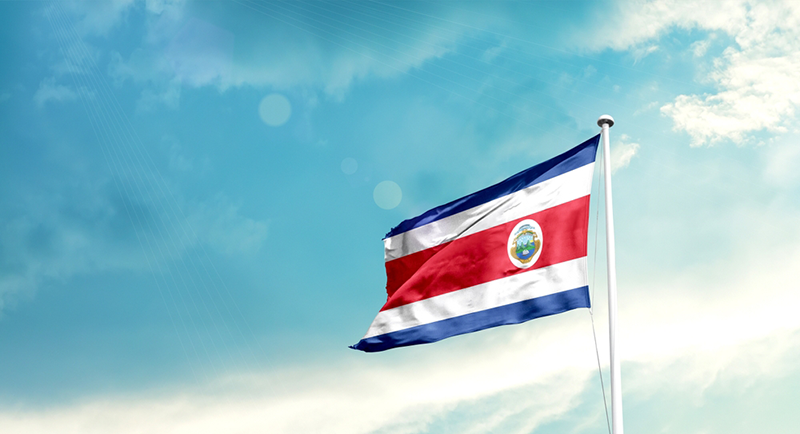Doing Business in Costa Rica
With its stable democracy, pro-business regulations, and expanding trade networks, Costa Rica has become one of Latin America's most attractive...

Chile stands out in Latin America as one of the most stable and transparent destinations for domestic and foreign investment. The Chilean government actively promotes economic growth through free market policies (with a GDP growth of 3.1% in 2024), legal certainty, and incentives that encourage significant investment in multiple sectors.
Chile's Constitution, Article 19 No. 2, guarantees equality before the law, but understanding cultural and linguistic barriers can be essential to building successful local relationships. Thanks to its strategic location in the Pacific, its extensive trade agreements, and its favorable business environment, Chile remains a competitive gateway for companies seeking to expand in the region.
The private sector drives the majority of Chile's GDP, supported by clear regulations and competitive conditions that attract local and international investors.
.webp?width=201&height=506&name=imagenes%20doing%20business-chile-37%20(1).webp) Chile offers a wide range of investment opportunities, supported by sustained GDP growth and a stable business environment. While often considered a small market compared to other Latin American economies, favorable market conditions and strong institutions make it attractive for long-term projects.
Chile offers a wide range of investment opportunities, supported by sustained GDP growth and a stable business environment. While often considered a small market compared to other Latin American economies, favorable market conditions and strong institutions make it attractive for long-term projects.
For companies managing cross-border taxation and seeking to understand the benefits of treaties, H&CO's article on the US-Chile Tax Treaty offers practical information on withholding rate reductions and double taxation protections. Also, to explore how Chilean SMEs are leveraging digital distribution, the article on multi-channel integration with SAP Business One illustrates modern strategies for multi-channel operations in Chile.
Successful market entry often requires adapting to local regulations, understanding business culture, and taking advantage of Chile's strategic position as a gateway to the Pacific.
Legal framework: Foreign Investment Promotion Law (Law 20.848).
Finding a good local agent or partner is often crucial to effectively managing regulations, cultural nuances, and distribution channels.
With a stable business climate, Chile attracts numerous foreign companies operating in diverse sectors, such as mining and financial technology, which benefit from transparent legal frameworks and efficient logistics. For example, Chile is a leader in mining (copper, lithium) and an emerging player in fintech.
Chile's agricultural sector, responsible for approximately 4.7% of GDP, is a world leader in high-value agricultural products such as fruits, wine, and salmon. A significant portion of farms (over 60%) currently use advanced technology, such as remote sensing and the Internet of Things (IoT), to improve accuracy and yield. By 2024, agricultural exports will exceed $23 billion, with projections showing continued growth. These trends indicate significant opportunities in both traditional and technological agribusiness.
For doing business in Chile, the services sector dominates the economy, accounting for nearly 57% of GDP. In particular, the technology and IT outsourcing sectors are expanding rapidly. IT outsourcing revenue is expected to reach $720 million by 2024, with total technology investment projected at $4.3 billion, along with job creation and the expansion of digital infrastructure. Chile is increasingly considered a regional technology hub, attracting global companies and offering access to Latin America and the Asia-Pacific.
.webp?width=202&height=509&name=imagenes%20doing%20business-chile-36%20(1).webp)
Population: 19.8 million inhabitants with an urbanization rate of nearly 88%.
Official language: Spanish
Currency: Chilean Peso (CLP)
Doing business in Chile offers solid opportunities for international investors thanks to its stable macroeconomic framework, strong institutions, and transparent market practices. While new foreign entrants must navigate regulatory procedures and government documentation, especially when starting operations or at fiscal year-end, these processes are generally predictable and supported by efficient online systems.
The country's economic development has been driven by both large economic groups and a dynamic network of SMEs, where Chilean entrepreneurs tend to value long-term relationships and trust in partnerships. Structural reforms, such as adjustments to the pension system, continue to shape the business climate, presenting both challenges and incentives for market entry.
The country offers a transparent and investor-friendly legal environment, supported by strong protection of property rights and clear commercial legislation. Commercial activities are regulated by the Commercial Code, the Civil Code, and sectoral legislation, and the Constitution guarantees equal treatment between foreign and local investors. The Foreign Investment Promotion Law (Law 20,848) guarantees the free transfer of capital, non-discrimination, and access to international arbitration.
Chile's corporate tax framework seeks to balance revenue collection with investment incentives, offering competitive rates, benefits derived from tax treaties, and special regimes for SMEs. The following table summarizes the main aspects of corporate taxation relevant to foreign and domestic companies operating in the country.
| TAX ASPECT | DESCRIPTION/RATE |
| General Corporate Income Tax (First Category Tax) |
Standard tax rate of 27% in the partially integrated system. Part of the corporate income tax can be deducted from shareholders' final tax.
|
|
Tax burden on distributions – Non-residents (without agreement)
|
The effective combined tax burden of approximately 44.45%.
|
| Tax burden on distributions – Residents of countries with a convention |
The total effective tax burden was reduced to approximately 35% due to double taxation treaties.
|
|
Tax Incentives for SMEs (Pro-SME Regime)
|
Rate of 12.5% for 2025-2027, increasing to 15% in 2028. Applies to qualifying SMEs.
|
|
Withholding taxes on dividends, interest, and royalties.
|
Generally 15%, with possible reductions for certain financial institutions or under double taxation treaties.
|
|
VAT
|
Standard tax rate of 19% on goods and services.
|
|
Submission deadlines
|
Monthly VAT and withholding tax returns and annual corporate tax returns are due in April.
|
As of January 1, 2017, the tax credit for taxes paid abroad is attributable to Chilean-source income, since foreign-source income is considered Chilean-source income once it is included in the taxpayer's net taxable income and is taxed in Chile.
The main investment incentives are the following:
Tax benefits and other incentives for companies operating in the northernmost and southernmost regions of the country.
Tax benefits for forestry companies, contracts for oil operations, and operations involving nuclear materials.
Tax benefits for SMEs.
Tax benefits for R&D.
.webp?width=193&height=486&name=imagenes%20doing%20business-chile-35%20(1).webp) Chile offers attractive and interesting market niches in agrotechnology, green hydrogen, and specialized services, sectors ripe for foreign investors seeking strategic entry points. While the goods export market has traditionally been dominated by raw materials such as copper, the country is progressively diversifying its export base toward high-value agricultural products and technology services.
Chile offers attractive and interesting market niches in agrotechnology, green hydrogen, and specialized services, sectors ripe for foreign investors seeking strategic entry points. While the goods export market has traditionally been dominated by raw materials such as copper, the country is progressively diversifying its export base toward high-value agricultural products and technology services.
Importantly, as the World Bank notes, companies should adjust their sales expectations to reflect the smaller scale and local dynamics of the Chilean market, even as opportunities increase with digital transformation and regional integration.
The World Bank highlights the soundness of Chile's macroeconomic framework and institutions, while warning of recent limitations on investment growth, which could force investors to adjust their earnings projections. Public data from InvestChile indicates that 65% of goods exports and 85% of services exports involve foreign capital, demonstrating how niche markets are increasingly supported by international partners.
Chilean business culture emphasizes personal relationships and trust. First meetings usually involve getting to know people. Business conversation often comes first. Arriving on time demonstrates respect and professionalism.
Chilean companies have clear hierarchies. People deeply respect authority, seniority, and titles. Senior members often lead meetings. Their knowledge is valued. Employees show respect for managers and senior leaders.
Chileans often speak with emotion, avoiding direct criticism to protect the dignity of others. Humor is welcome in discussions if it remains appropriate. A polychronic work style is common; this means people manage multiple tasks.
Known as "Sanhattan," La Condes is Santiago's modern financial epicenter, home to high-rise offices, luxury hotels, and first-class shopping. It's ideal for visitors who prioritize efficiency and proximity to major business centers. Another notable neighborhood is Providencia, a cosmopolitan mix of business and leisure, near the Costanera Center (the tallest building in Latin America), with excellent subway connectivity, restaurants, and coworking spaces.
Ideal for professional meetings with a friendly atmosphere, convenient location, and quality cuisine, the following restaurants are notable: Estró Santiago (Las Condes), Chef Papillote, and Nolita, the latter a refined Italian restaurant known for its fast, high-quality service. It's especially convenient for business travelers looking for quality food with minimal delays.
The Las Condes district is home to a significant number of embassies and consulates, including those of the United States, the United Kingdom, Taiwan, and Switzerland, among others. It is part of the city's financial and commercial center, commonly known as Sanhattan, and boasts excellent infrastructure and security.

With its stable democracy, pro-business regulations, and expanding trade networks, Costa Rica has become one of Latin America's most attractive...

Doing business in Uruguay represents a strategic opportunity for companies and entrepreneurs seeking to expand in Latin America and connect with the...

The UK remains one of the most influential economies in the world, offering strong institutional stability, deep capital markets, and a strategic...